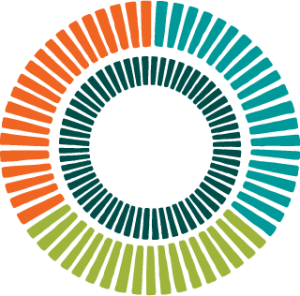Since the first illness was reported in China in December 2019, the coronavirus has affected over 80,000 people globally and caused nearly 3,000 deaths, with reports almost each day of the virus spreading to additional areas.
The majority of the pain so far has been felt in China and by companies with operations there. Many Chinese factories and businesses in the city of Wuhan and Hubei province—the epicenter of the outbreak—have been shut down since before Jan. 25, the Chinese Lunar New Year, and remain closed today. Multinational firms quickly followed suit, with most stores and factories closed in affected areas across all of mainland China, Hong Kong, and Macau by the start of February. Household names from Nike to Microsoft have been affected, and both Apple and Tesla have noted delays in their supply chains that are expected to cause the companies to fall short of revenue guidance. The impact to global supply and demand has yet to be quantified, but China led the world with $2.5 trillion worth of exported goods in 2019, according to the China National Bureau of Statistics, so the abrupt closing of much of the Chinese economy cannot be understated.
Quantifying the equity market impact from the coronavirus—and determining what institutional investors should do—is difficult because there is no playbook to reference, due to both the rate of disease transmission compared to other outbreaks and the evolution of the Chinese economy. The immediate comparison is to the SARS outbreak in China in 2003, but the number of coronavirus infections and deaths has already exceeded that of SARS, and global contagion is much more widespread.
Part of this contagion is due to the greater interconnectedness of the Chinese economy and its growth since 2003. When SARS broke out, Chinese companies represented only 0.36% of the MSCI ACWI Index, compared to 4.2% at the end of 2019. And FactSet calculates that these companies represent nearly 10% of revenue generation for all companies in the index today. Further, the IMF estimates China contributed 16% to global GDP in 2019, up from just 4% in 2003, due in large part to the shift in the sectors driving its economy today compared to the past. In 2003, Chinese equity markets were dominated by the Energy and Industrial sectors as the economy was industrializing and more export-driven. Today, the Chinese equity markets are led by consumption and services companies represented by the Consumer Staples, Consumer Discretionary, Financials, and Communication Services sectors.
Unsurprisingly, global equity market pullbacks so far have impacted these sectors—plus Information Technology—to the largest degree throughout January and February, but sharp snapbacks have also occurred given the day’s news cycle. If there is a single certainty, it’s that the coronavirus has infected the equity markets with one thing: volatility.
So what should an institutional investor do? To attempt to answer this, Callan’s Global Manager Research team has been speaking with a wide range of investment managers, particularly within the emerging market, global, and global ex-U.S. equity asset classes, to gather input from informed investors to shape our thinking. Investment managers widely believe that China’s consumption and travel-related industries will continue to experience share price weakness while outbreaks persist, which will ultimately lower China and global GDP. However, many managers believe the equity market pullbacks have made for more attractive entry points for companies where fundamentals remain strong.
While most managers have yet to make significant—or even any—changes to their portfolios due to the coronavirus, exposure to these beaten-up securities is likely to be added in portfolios if a treatment to the disease is found or contagion meaningfully lessens to support a reversion in share prices.
In the meantime, here are some questions to ask your investment managers to gain a better understanding of how they are monitoring the coronavirus situation in your portfolios:
- Have the managers changed portfolio positioning to address coronavirus impacts? How did they assess which companies warranted action?
- What is the direct and indirect revenue exposure to China of each portfolio company and the portfolio as a whole?
- How are managers assessing the success (or failure) of portfolio companies’ contingency methods to address loss of revenue or supply chain disruption?
- At what level of revenue loss or supply chain disruption would their investment thesis in each portfolio company be broken?

